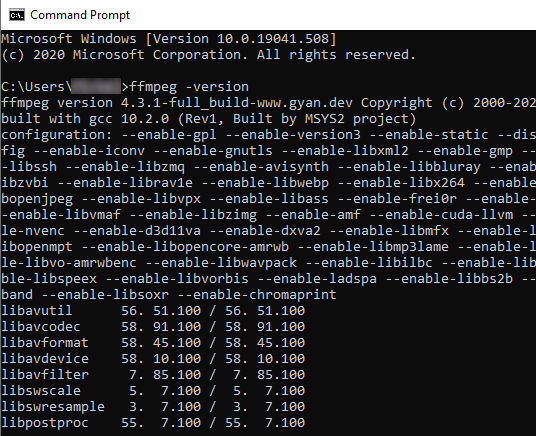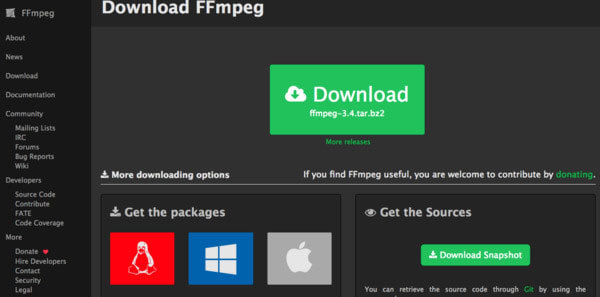

This installation process is set up to build it with few very good encoders (fdk_aac for audio and x264 and x265 for video), but you can build it with almost anything. It is often used in servers for on-the-fly transcoding to serve videos, but the use intended here is remuxing/transcoding to produce high-quality, smaller files with desired container format and codecs. No harm to the main FreeNAS or other jails.įFmpeg is a powerful, versatile media editing program, used in products like Plex, Kodi, and VLC. I'm really starting to appreciate jails because, when I screwed things up (many times), I just deleted the jail and started over. I've written it assuming knowledge of basic FreeNAS tasks like accessing by SSH, but for someone who has never used a jail. It took three days to figure it out as there were a lot of hurdles to overcome (and some peculiarities of FreeBSD), so I thought I would share the process for the one or two other people in the world who want to do this ). I wanted to install a custom build of ffmpeg on my FreeNAS to do long transcoding tasks and not tie up my laptop for days at a time.

Here is the list of the FFmpeg basic command options used with FFmpeg command-line tool.** Updated 2020 May with FreeNAS 11.3 and latest libraries ** sudo apt-get updateĪfter successfully install FFmpeg, let’s check the version installed on the system. This will also install many packages for the dependencies. Step 2 – Install FFmpeg on UbuntuĪfter enabling the PPA, Lets exec below commands to install ffmpeg on Ubuntu system.

This PPA contains packages for Ubuntu 18.04 (Bionic) and 16.04 LTS (Xenial) only. sudo add-apt-repository ppa:jonathonf/ffmpeg-4 Execute below command to add FFmpeg PPA on Ubuntu system. To install the latest version, you need to configure PPA on your system. Step 1 – Setup FFmpeg PPAįFmpeg 4 is the latest available version for installation on Ubuntu. This tutorial will help you to install FFmpeg on Ubuntu 18.04 LTS & 16.04 LTS systems with easy steps. FFmpeg includes libavcodec audio/video codec library in it. It’s also useful to convert multimedia files between various formats. FFmpeg is a cross-platform solution for streaming audio and video as well as recording and conversion.


 0 kommentar(er)
0 kommentar(er)
